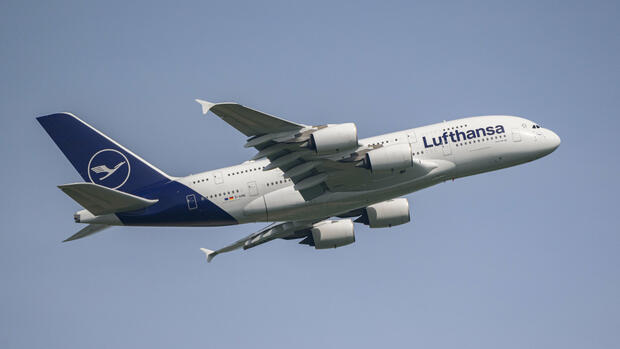Frankfurt, Munich Brass band music is a must when a new type of aircraft takes off in Munich for a scheduled Lufthansa flight. The A380 from Airbus is actually not that new, but has only taken a break of a good three years.
On Thursday, June 1 at 3:35 p.m., the Lufthansa jet D-AIMK is scheduled to take off with musical accompaniment and fly to Boston daily throughout the summer. For the American Independence Day on July 4th there will be a daily connection from Munich to New York.
The A380 is the largest passenger aircraft in the world and for a number of years was considered a symbol of the technical prowess, if not superiority, of the European Airbus group. However, it quickly became apparent that the four-radiator could only be operated in a cost-effective and environmentally friendly manner if almost all seats were sold. Globally, this was only possible on a few racetracks and ultimately resulted in only 251 of the giant birds being built. For comparison: 1574 copies of the Boeing Jumbo 747 were delivered in a much longer span.
The first A380s have already been scrapped. The last aircraft went to the largest customer Emirates in December 2021, which alone purchased 123 aircraft for its ambitious growth program at the Dubai hub.
Lufthansa was the third largest A380 customer worldwide
With 14 aircraft, Lufthansa was the third largest A380 customer in the world after the Arabs and Singapore Airlines and had already decided to phase out the giant aircraft before the corona crisis due to the booking problems. In the course of new orders for other types, the manufacturer Airbus has contractually committed to taking back six aircraft in 2023, so that Lufthansa basically still has eight A380s. After the Corona outbreak at the Spanish airport Teruel, they were put into the so-called long-term parking mode and should only be reactivated in the event of an “unexpectedly rapid market recovery”.
It came faster than expected last summer and also encountered serious delivery problems at the manufacturer duopoly of Airbus and Boeing. Lufthansa had planned the youngest and largest version of the twin-engine Boeing 777-X as a flagship with around 400 seats from 2023, but the Americans had to admit that they would not be able to deliver the first copy until 2025 at the earliest.
>> Read also: Those declared dead fly longer – why the Airbus A380 is making a comeback
Even with the smaller 787 “Dreamliners” there are always delays. Since Airbus and engine manufacturers are also struggling at the same time due to disrupted supply chains, there will be a global shortage of aircraft for years to come.
In addition, after the pandemic has been overcome, there are homemade personnel problems at airlines and airports. The tight supply is good for the industry, says Lufthansa CEO Carsten Spohr, but at the same time states: “Every plane on the ground hurts.” Because demand and ticket prices are currently rising sharply, as are the leasing rates for jets. In addition to taking advantage of cheap second-hand opportunities, it is important to get your own material up and running as quickly as possible. And if only for a few years.
Reactivation costs millions
The capacity of the A380, each with 509 seats, is urgently needed, says Lufthansa’s airline boss Jens Ritter. This summer alone, around 50,000 additional passengers could be transported, and in the coming year there are even supposed to be around one million passengers for whom there would have been no seats and tickets without the A380.
The group has not yet provided any information on the costs of the return campaign for six of its own A380. For every mothballed plane, an expense of millions has to be budgeted, because in addition to the prescribed maintenance with thousands of technician hours, hail damage to the outer skin had to be repaired, which the parked planes suffered in Aragon, which is actually very dry.
For each mothballed plane, an expense of millions is to be planned,
(Photo: dpa)
Even during operation, there are additional costs for transfer flights to Frankfurt because certain maintenance work on the tail unit can only be carried out in the A380 hangar there. The Management Board is hesitant about the last two machines available because more complex and expensive maintenance events are imminent.
The booking situation for the premiere flight and for the following dates is very good, says Lufthansa spokeswoman Bettina Rittberger. There are even guests who have waited especially for the giant aircraft because it is so spacious and quiet. “There is no nicer and calmer feeling when flying than in the A380,” says frequent flyer Torsten Gründer, for example. From the end of October, the A380 destinations from Munich will then be Bangkok and Los Angeles.
Even before Pentecost, the future pilots completed an extensive training program with take-offs and landings at the airports in Leipzig, Prague and Vienna. Munich was also chosen as the location because many pilots with a license for the smaller A350 are already stationed at the hub. The license can be extended to the A380 in a short time. Lufthansa needs around 20 pilots and around 400 flight attendants with valid licenses for each individual A380.
More: Lufthansa joins ITA Airways – after agreement with Italy
